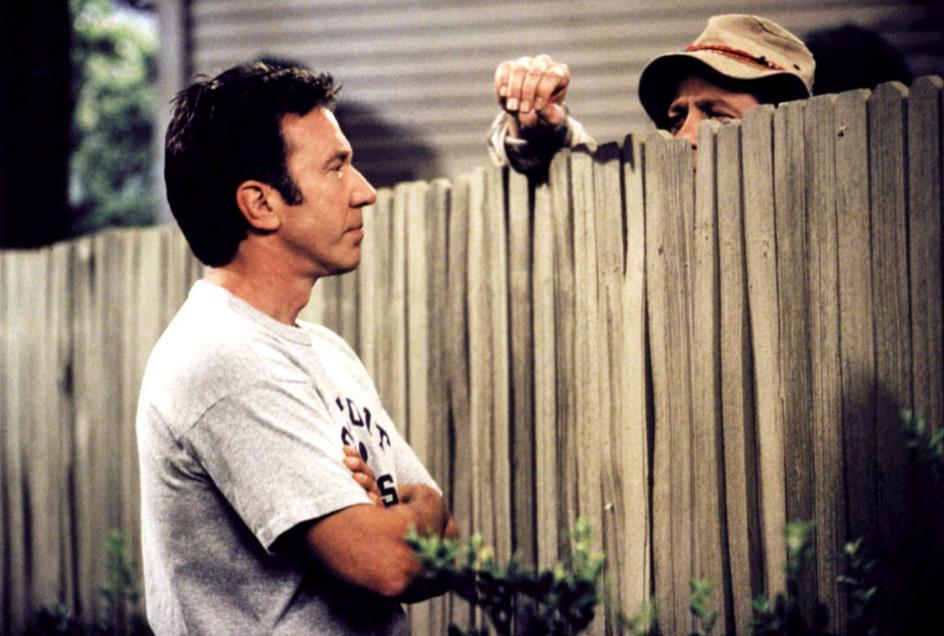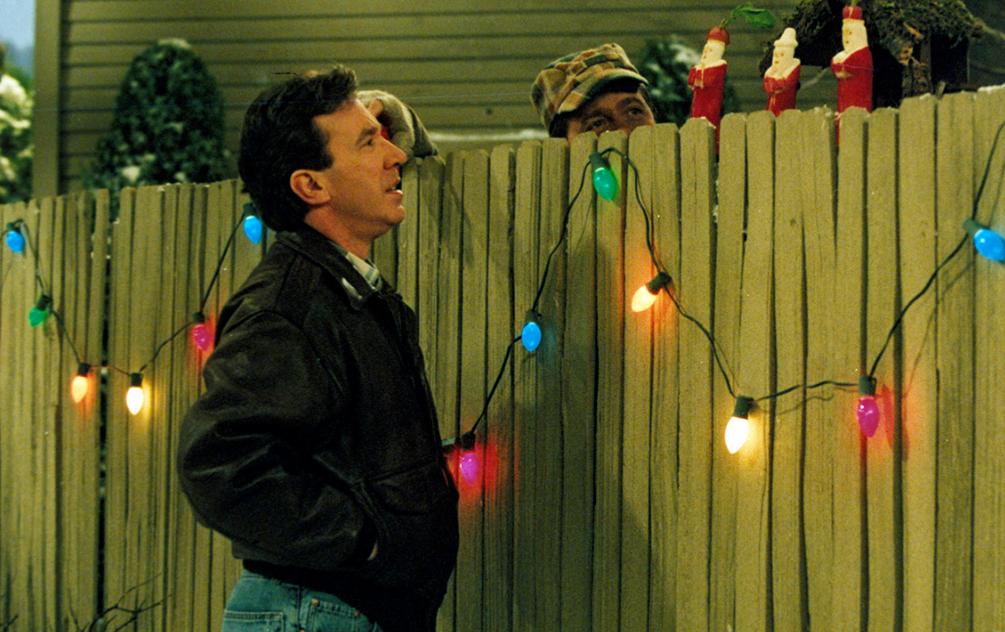For eight seasons of Home Improvement, Tim Taylor’s chaotic mix of power tools, parenting mishaps, and midlife confusion was counterbalanced by the man next door—a neighbor whose face you never fully saw, but whose presence you always felt. Wilson W. Wilson Jr., played by Earl Hindman, wasn’t just a sitcom side character. He was a rare television creation: a source of comfort, curiosity, and the occasional baffling anthropological fact.
Thank you for reading this post, don't forget to subscribe!The Neighbor You Never Fully Meet
Wilson’s gimmick—hiding his face behind a fence or some conveniently placed object—could have been a one-season joke. But the Home Improvement team made it into something much more layered. We never saw the whole man, but we saw enough to know he was grounded, good-hearted, and always ready to listen.
That choice became strangely symbolic. In real life, we rarely see people in their entirety. We catch glimpses—the public face, the casual conversations, the filtered social media posts—but there’s always more hidden. Wilson’s fence was less a barrier and more a reminder: you don’t need to see everything to know someone matters.
Wilson as the Anti-Sitcom Character
In the 1990s, most sitcoms revolved around fast-paced jokes, big personalities, and constant one-liners. Wilson slowed things down. He didn’t rush. He didn’t shout to be heard. His scenes were often shot in real time—no quick cuts, no laugh track steamrolling the pauses.
He also wasn’t there to be the “funny neighbor” in the usual sitcom sense. His humor was gentle, often unintentional, springing from Tim’s misinterpretations. Wilson’s goal wasn’t to get laughs—it was to get Tim (and us) to think.
The Method Behind the Mystery
Earl Hindman had a challenge most actors would run from: build a beloved character without showing your face. He leaned into voice tone, posture, and timing. The tilt of his head, the way he leaned on the fence, the calm steadiness in his words—they all became part of Wilson’s signature.
What made Hindman so effective was that he never played Wilson as a joke. The fence bit was a joke, sure, but Wilson himself was always sincere. In a show where Tim routinely blew up household appliances, Wilson was a safe harbor.
Wilson’s Worldview
Wilson wasn’t a casual advice-giver. His guidance came from a deep well of knowledge—folk wisdom, literature, cultural traditions, even obscure historical footnotes. He didn’t talk down to Tim, even when Tim clearly didn’t understand half the words.
What made it work was that Wilson wasn’t trying to show off. You got the feeling he actually lived the ideas he shared. He wasn’t just quoting philosophers—he was modeling curiosity, empathy, and respect for different perspectives.
And that’s the thing: Tim never walked away from a Wilson conversation with a ready-made solution. He walked away with something to chew on. That’s a rare kind of wisdom, on TV or in real life.

Quotes Worth Keeping
Wilson dropped enough memorable lines to fill a desk calendar, but here are a few that still land today:
-
“Sometimes we have to take a step back to see the whole picture.”
-
“Are you trying to be right, or are you trying to be happy?”
-
“You can’t control the wind, but you can adjust your sails.”
-
“The grass is greener where you water it.”
-
“The eyes are the windows to the soul, but the mouth is the front door.”
Notice how simple they seem at first—and how they stick with you later.
More Than Nostalgia
It’s easy to see Wilson as a charming relic of ’90s TV, but in today’s world, he feels almost radical. We live in an era of hot takes, instant opinions, and constant noise. Wilson modeled something quieter: listen first, then speak; think before you react; draw from something deeper than the headlines.
Imagine if more conversations today happened Wilson-style—over a fence, with no agenda but understanding.
The Curtain Call
For eight seasons, fans wondered what Wilson’s full face looked like. The only time the show broke the rule was during the curtain call of the series finale, when Hindman stepped out from behind a half-fence prop and waved. It was fitting: after years of mystery, we got to see the whole person—not just the neighbor.
Hindman passed away in 2003, but the character he built lives on. People still quote Wilson, still reference the fence gag, still think of him as the fictional neighbor they’d most want to have.
Why He Still Matters
Wilson worked because he wasn’t flashy. He didn’t compete for screen time. He just showed up, consistently, with kindness and a different way of seeing the world. In a show about “more power,” Wilson’s power was subtle but lasting.
The lesson? Sometimes the best voice in the room is the one that doesn’t raise itself.
Quick Trivia for Fans
-
The name joke: “Wilson W. Wilson Jr.” is intentionally redundant—a little wink from the writers.
-
Props as punchlines: In one episode, his face was hidden by a clown mask; in another, by a hanging Halloween skeleton.
-
Actor’s input: Hindman sometimes suggested cultural references for Wilson’s lines, adding authenticity.
-
Fence height trick: The fence was lower than it looked; camera angles did the rest.
Wilson was never just “the guy over the fence.” He was proof that you don’t have to see the whole picture to appreciate its value—and that the right words, said at the right time, can stick with someone for decades.


